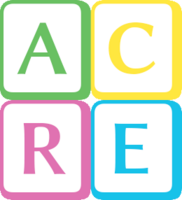How to convert your data
If you want to convert your data, there are two main ways to proceed:
- If currently using HIFIS 3, there is a HIFIS 3 to 4 conversion tool made available by the HIFIS Development Team; or,
- You could pay a third-party software developer to convert your data for you
Third-Party Software Developers
In theory, any similar-ish database could be converted to HIFIS 4 if you have someone with the appropriate technical skills to create a software program that will convert it for you. Again, theoretically, it's possible (however unlikely) that you have such a person on your staff right now. Certainly, there are a few communities in Canada that have developed their own HMIS software in-house and therefore do have the technical expertise necessary for a task like this.
Most likely, however, you would need to contract out for someone to develop this software for you. In general, paying a third-party software developer is likely to be very expensive and is not recommended for most communities. Normally, we don't name communities that we use as examples, but hiring a developer to convert data from different databases into HIFIS 4 is part of the story in London, Ontario.
The HIFIS 3-4 Conversion Tool
There is a tool put out by the HIFIS Development Team that allows you to convert your HIFIS 3 database to HIFIS 4. However, it does have some idiosyncrasies of its own.
The first thing to understand is it’s not very commonly used. While a number of communities are using HIFIS 3 today, and a number of communities are using HIFIS 4 today, a very small number of communities (perhaps 0) are using the conversion tool today. As a result, more software development resources are allocated to fixing bugs and adding new features to HIFIS 4 than to the conversion tool. If you call the support desk today and ask for the conversion tool, they may need to update the conversion tool (since it hasn’t been updated in 6 months, and there are new features in HIFIS that it doesn’t accommodate) before you can use it. There also may be bugs in the software, or it may cause bugs in your HIFIS 4 database that wouldn’t be present if you were starting with a clean, blank database.
Related, you’re going to need to work with the HIFIS Development Team to do the conversion. It’s quite likely you’ll try a test conversion and something won’t quite work as intended. You can expect to spend time talking to the support desk and working through these issues, getting a few different updates and iterations of the conversion tool, and trying again. (Note that you can also expect the same thing if you have a custom conversion tool developed by a third party.)
Third, it’s going to convert all of your clients, including the past ones. Their consent status should transfer over, but for better or worse, you’ll be converting your entire past history of clients, including ones you haven’t seen in ten years. This could potentially make your database very large, and if you’re server’s not built for that amount of data, slow down the software significantly.
Finally, you have limited choice about what data gets converted and what doesn’t. You can select some options in the tool, but there are some pieces you’re stuck with. For example, it’ll convert all your Housing Units (which some communities have stated results in a lot of duplication) and all your People (which could be cause for some concerns regarding privacy).
Tip: There are 3 municipalities in Canada that we know of who have used the HIFIS 3-4 conversion tool and then proceeded to launch with HIFIS 4. If you are considering this route, we strongly recommend you contact them (we can connect you) and learn from their experiences.

























